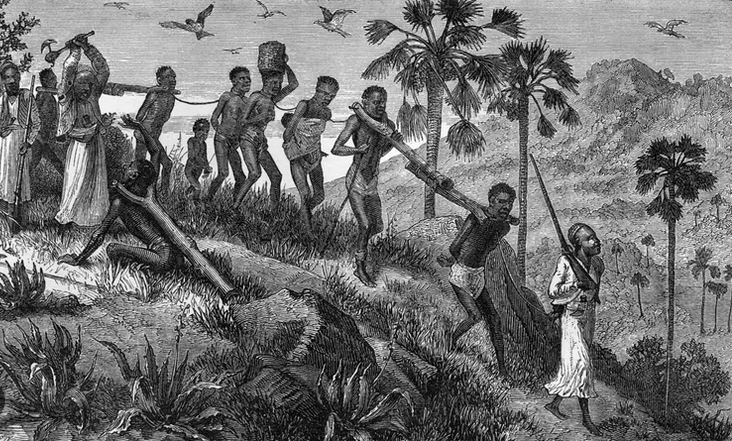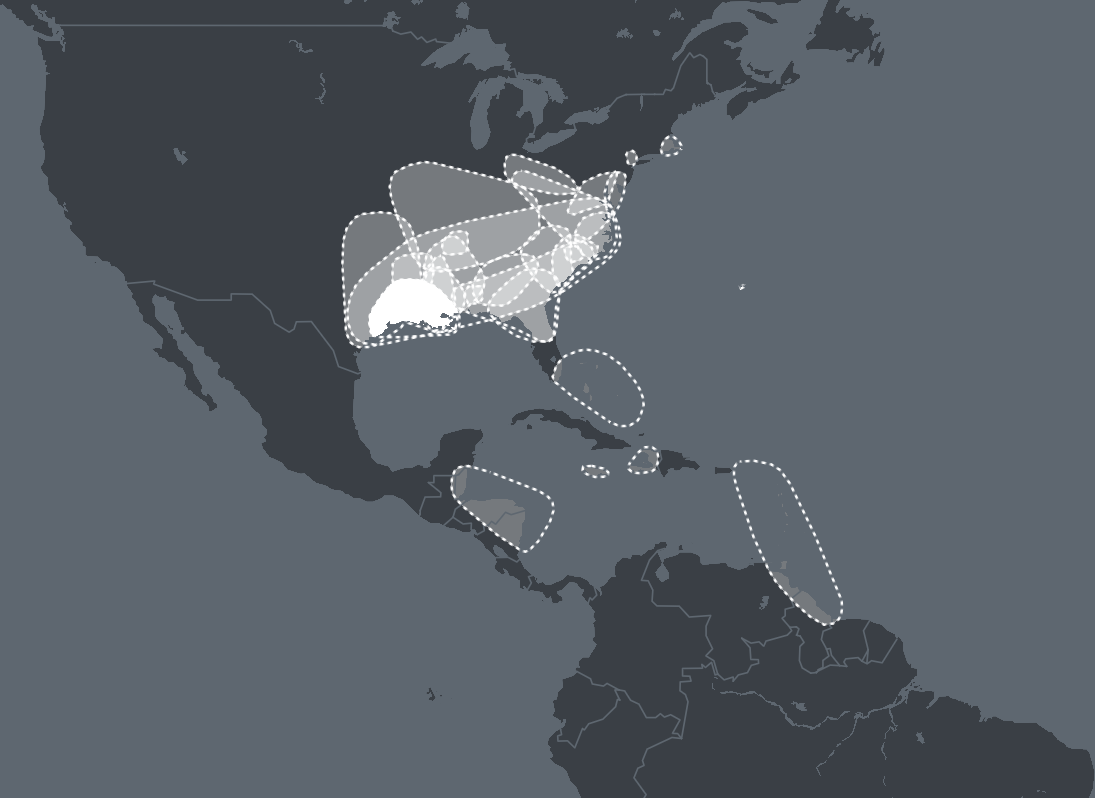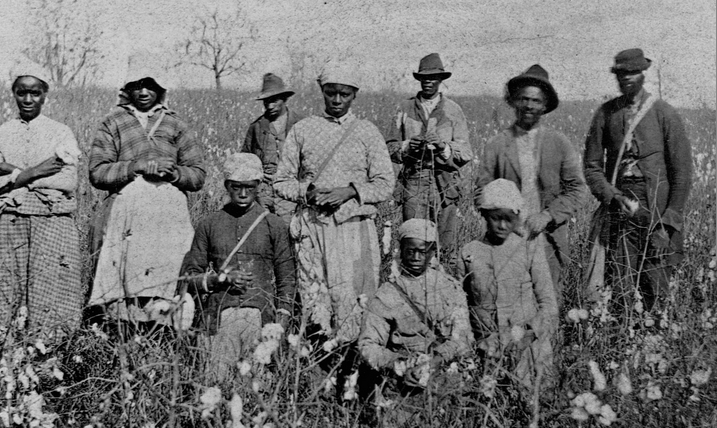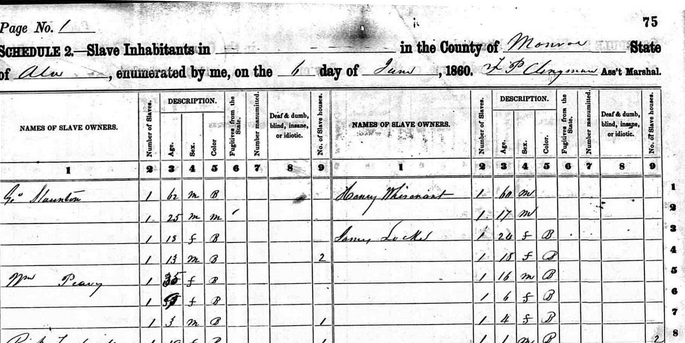What is African American & African Caribbean Communities DNA Ethnicity on Ancestry?
Communities are different to the DNA regions you usually find in your ethnicity report but they are still important tools for understanding your geographical origins. In this post we will look at an extensive group which relates in the most part to descendants of African slaves stolen from Africa as part of the trans-Atlantic slave trade.
The Impact of Slavery
The first Africans to arrive in North America and the Caribbean were not in fact slaves but former Spanish slaves who were freed by Francis Drake. They arrived aboard the Golden Hind and New Albion ships in California in 1579. If only African migration had stayed in this format but sadly the European colonization of the Americas was quickly followed by the transatlantic slave trade during the 16th and 17th centuries.

It is estimated that roughly 10 – 12 million Africans were sold by the Barbary slave trade to either Europe or the Americas. Roughly 388,000 landed in North America and today millions of African Americans can claim lineage from these individuals.
Considered property by the people who purchased them, these slaves were treated poorly, forced to work and considered no more human than livestock. This was a cruel and frankly evil period of American history which robbed thousands of Africans of their freedom and their descendants of their rightful heritage.
What Is the African American and African Caribbean Community DNA Region?
The most accurate way to approach this particular section of Ancestry’s DNA is to understand this is not so much a geographical region but a series of smaller communities that saw habitation from a group of peoples who are closely connected.
The communities in this region are:
- Afro-Bermudians
- Afro-Caribbean Peoples of Belize, Honduras & Nicaragua
- Afro-Caribbean Peoples of the Lesser Antilles
- Bahamas
- Central & Southern Mississippi & Eastern Louisiana African Americans
- Central Ohio & Northern West Virginia African Americans
- Coastal Carolina African Americans
- Early Alabama & Georgia African Americans
- Early Delmarva Peninsula African Americans
- Early Louisiana African & Creole Americans
- Early North Carolina African Americans
- Early South Carolina African Americans
- East Texas & Oklahoma African Americans
- Eastern Louisiana & Western Mississippi African Americans
- Georgia Coastal Plain to Central Florida African Americans
- Haiti
- Inland Mississippi African Americans
- Jamaica
- Lower Chesapeake Bay to Northeast North Carolina African Americans
- New York & New Jersey African Americans
- Northern Louisiana & Southern Arkansas African Americans
- Portuguese Islanders in the Eastern U.S.
- Robeson County North Carolina, Lumbee & African Americans
- South & Central Louisiana African & Creole Americans
- South Carolina African Americans
- Southwestern Alabama African Americans
- Upland South African Americans
- Virginia & Southern Ohio African Americans
- Washington, D.C. Area African Americans
- West Tennessee African Americans
What Are DNA Communities?
The concept of AncestryDNA ethnicity regions is pretty simple and when it comes to individuals of African descent finding a region or regions in Africa that their ancestors can be very enlightening. They can learn more about the peoples and history of that region to get an idea of where they are from culturally speaking.
People however get a little more confused over what the DNA communities are in the ethnicity report. To try and make it as simple as possible I think of it like this: the regions are our ancestral origins while the communities are our ancestral journey.
In the United States immigrants whose family has been here for generations will not only get global regions their ancestors come from but also communities. These communities are generally localized places where some of their ancestors may have first settled in the U.S.

Early communities in the US may have a group of settlers all from the same country, some who may already be related or they have been drawn together by a shared culture. They may settle a small area carving out their own parts but interacting as a community.
Marriages would occur in the community and within a few generations DNA will be shared and become common in many of the local families. Over the years people may leave the community to go elsewhere but will take that common DNA with them and integrate it into a new community.
Generations of a family may stay in their ancestral landing point which will make that geographically a focal point for common DNA. After a few generations the descendants of the ones who leave may still have this common DNA and when they test they find out they share that with a large population in a specific area.
Essentially these DNA communities tell us where our ancestors settled for a while and where we still have distant cousins who may share those ancestors with us.
Why Is This Important to African Americans and African Caribbeans?
When you look at the collection of African American and African Caribbean DNA communities you notice something painfully obvious. These communities center mainly around the former slave owning regions of the US, Central America and the Caribbean.
A hit for anyone of these hundreds of communities and sub-communities can give a person of African descent an idea of where a few generations of their ancestors may have lived. As an example a strong indication of South Carolina African Americans indicates that they would have ancestors who lived in that region for likely several generations.

In the South Carolina African Americans DNA community there are 27 sub-regions which might further concentrate the search into specific counties. This can be hugely beneficial in researching ancestry which for those of African descent can be challenging due to the history of slavery.
What About the Communities in Non Slave Owning Areas?
You may notice some of the communities involved are not in former slave states. This is because often African Americans even outside the Slave states who lived free would still live close as part of communities.
Even today there are extensive African American communities in most large cities but historically there was not much choice about leaving the community and settling elsewhere. Just as German, Irish and Italian communities developed, so too did free African American communities.
Why Is It Hard to Research African American Ancestry?
Slavery persisted in the United States until 1865 with thousands of people prior to this time not really having an independent identity of their own. Over the years slaves escaped, were released or found ways to buy their own way and that of their families out of slavery. The majority however were still not considered to have any rights.
Prior to 1865, if they appeared in census records, slaves were counted as property and may have been listed just by gender and age and not by name. You may find named slaves in the wills of plantation owners but usually just to denote who they were being bequeathed to.
For many African Americans there is a gap of hundreds of years between their first African born ancestor and the first of their line to be born as a free person. In fact many African Americans may shy away from looking into their history for the very fact that they know where it may eventually lead.
Tips to Research African American Ancestry
Researching African American ancestry is not impossible and there are some ways to get some reasonable results to gain an insight into the people you may descend from. In this section we will look at some of the best sources to look for.
Census Records
Census records are always a great resource for genealogical purposes as they allow us to track family units as well as individuals. As mentioned up until 1860 slaves would appear either as a number of slaves in the federal census or in the case of 1850 and 1860 the census slave schedules as entries with just a gender and age alongside the name of the slave holder.
It is important to note however that freed African Americans may be found in earlier censuses and from 1870 onwards all African Americans in the census would have been considered free. They would have the same details listed for them as everyone else in the census.
This allows us to locate families of African Americans and trace them back across the decades to where they lived and what they were doing.
The Census Slave Schedules
We have mentioned these above and they were gathered at the same time as the federal censuses of 1850 and 1860. The slave owner is listed with a list of slaves that they own. They are not described by name but they do mention gender, age, race, ethnicity, and birth year.

Now this is not completely useless as long as you perhaps already have some idea of who your ancestor was. As an example even after being freed slaves would tend to use the last name of their most recent slave owner.
If your ancestor for example was named Thomas Shearer and you find him living in Virginia in 1870 and you know he was roughly 30 at that time, you could then search the same area in Virginia in the 1860 Slave Schedule to see if there are any slave owners by the name Shearer. You would then look for a male slave of about 20 years of age. Although not conclusive this could be Thomas Shearer listed as property of the slave owner.
Civil War Records
Many former and current slaves took part in the American Civil War and although slave owners didn’t count them as people the armies did and their records would be more reflective and detailed.
Freedman’s Bank
After the war a bank opened known as the Freedman’s bank which was set up to help former slaves establish themselves. They kept meticulous records which are available on sites such as Ancestry.com and FamilySearch.org.
You could discover a wealth of information about ancestors including the names of siblings and potentially their parents.
Final Thoughts
Although not considered regions in AncestryDNA terms the communities can be far more enlightening for those seeking their ancestral path. The communities do not tell you your ethnicity but they can tell you where some of your ancestors have lived on their journey from the family origin to where you are now settled.
This is particularly important for those researching African ancestry as it may point to where a person's first African ancestors may have lived in the U.S. Long distance travel was less frequent so they often remained in the same area for generations especially those still bound into slavery.
Link To or Reference This Page
We spent a lot of time downloading, cleaning, merging, and formatting the data that is shown on the site.
If you found the data or information on this page useful in your research, please use the tool below to properly cite or reference Name Census as the source. We appreciate your support!
-
<a href="https://namecensus.com/blog/what-is-african-american-african-caribbean-communities-dna-ethnicity-on-ancestry/">What is African American & African Caribbean Communities DNA Ethnicity on Ancestry?</a>
-
"What is African American & African Caribbean Communities DNA Ethnicity on Ancestry?". NameCensus.com. Accessed on May 10, 2024. https://namecensus.com/blog/what-is-african-american-african-caribbean-communities-dna-ethnicity-on-ancestry/.
-
"What is African American & African Caribbean Communities DNA Ethnicity on Ancestry?". NameCensus.com, https://namecensus.com/blog/what-is-african-american-african-caribbean-communities-dna-ethnicity-on-ancestry/. Accessed 10 May, 2024
-
What is African American & African Caribbean Communities DNA Ethnicity on Ancestry?. NameCensus.com. Retrieved from https://namecensus.com/blog/what-is-african-american-african-caribbean-communities-dna-ethnicity-on-ancestry/.
